Basra, second largest city in Iraq
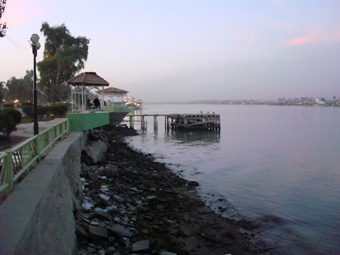
Basra is situated in the far southeast part of Iraq, at the "Shat alArab", the confluence of the rivers Eufrat and Tigris. Along the riverside there are many cafés and restaurants, nowadays open until late in the evening.
On the other side of "Shat alArab", after 40 - 50 km, lies the border to Iran.
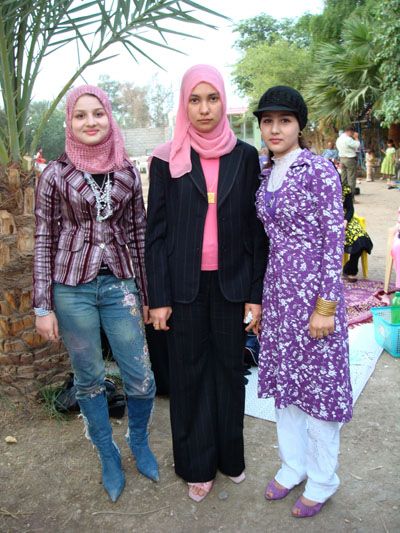
Fashion is now allowed to vary. The girls are pictured at an amusement park in the afternoon. But what are the reasons behind the improvements and more relaxed attitudes?
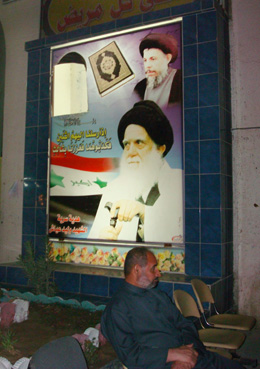
Someone is missing at the big picture outside the entrance to the hospital of Basra...
At the top left, the picture of Muqtada alSadr has been cut out. His highly revered father Mohammad Sadiq down to the right and his uncle Mohammad Bakir are still there. Muqtada lived on his relatives good reputation and could control Basra with his "Mehdi" milita, opressing people under fiery talks of driving Coalitions forces out of Iraq and the pretext of creating a muslim community.
In March
2008 the alMaliki government in Baghdad had enough with the renegade "preacher",
entered Basra with troops and drove out the "Mehdi"militia. He is
now said to stay in Iran.
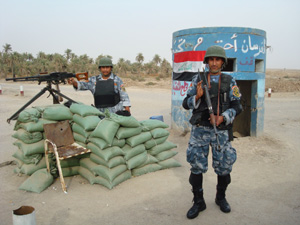
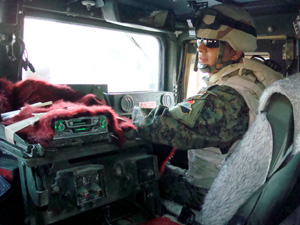
The Iraqi army has seen drastic improvements the last years and security forces in Iraq now number up to 650 000 men. But where once advanced communication gear was placed in the former US Army jeep, now a car stereo sits.
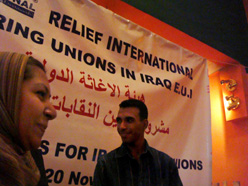
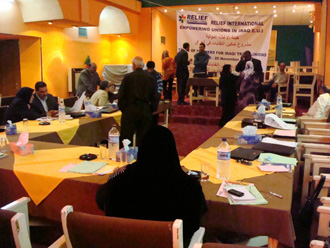
Unions are starting to be created. Workers rights are needed.
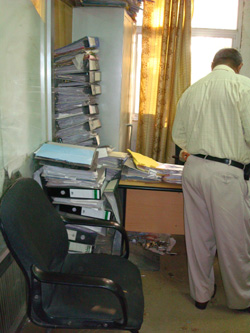 Knowledge
and capacity are lacking. Bureaucracy and corruption are ubiquitous.
Knowledge
and capacity are lacking. Bureaucracy and corruption are ubiquitous.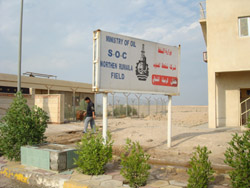
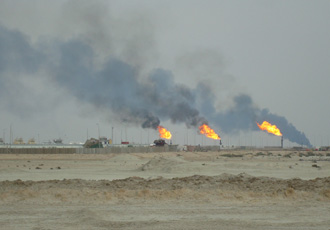
The Rumaila-oilfield not far from Basra is one of Iraq's superfield, i.e. holding more than one billion barrel. The Iraqi oil export is now close to 2,2 million barrels a day which with a price close to 50 USD a barrel, gives Iraq an early income of up to 40 billion USD.
There is no lack of money, but almost everything else. Like technology for processing residual gas from the oilfields. In one month, an amount equal to the yearly consumption of gas in the whole United Kingdom is just burnt up.
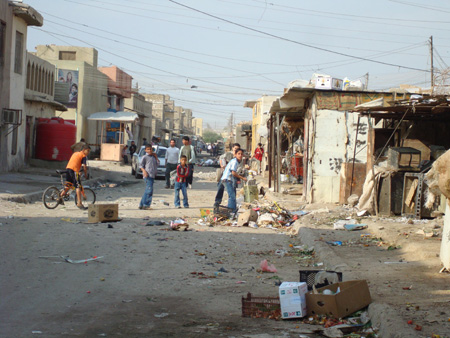
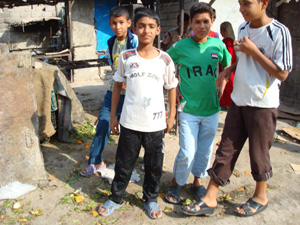
Hawaniya, a slum area in Basra. Sevage run straight out in the streets from houses. Drinking water system has leaks and sevage is mixed with drinking water. Decades of lack of maintenance and investments mean that cholera outbreaks are common.
Copyright: Lennart Berggren / Axiom Film
--------------------------------------------------------
tillbaka hem back to homepage
Axiom Film&TV
mobile phone + 46 708 103890
email: mail(emailsymbol)axiomfilm.com